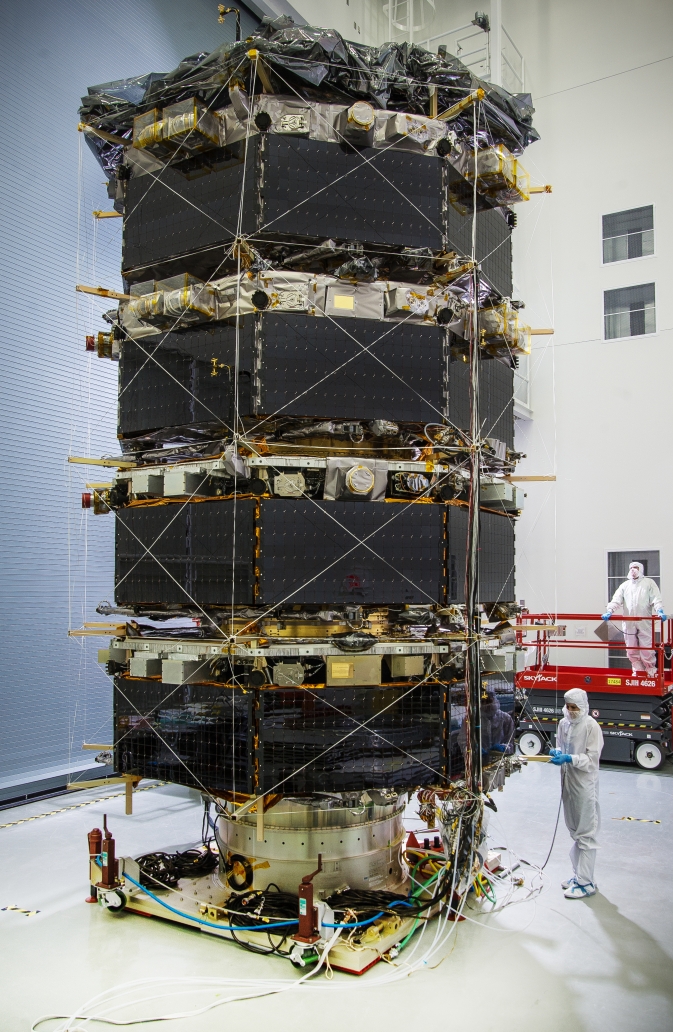:

Engineers at NASA’s Goddard Space Flight Center in Greenbelt, Md., accomplished another first. Using a large overhead crane, they mated two Magnetospheric Multiscale, or MMS, observatories – also called mini-stacks -- at a time, to construct a full four-stack of observatories.
Next, the MMS four-stack will be carefully transported from their Goddard cleanroom to a special vibration facility — housed within the same immense integration and testing facility — where they will be secured to a large shaking table and subjected to vibration tests. These tests help to ensure the structural integrity of the stacked spacecraft prior to shipment to NASA’s Kennedy Space Center, Fla.
The vibration tests determine whether the four MMS spacecraft can withstand the extreme vibration and dynamic loads they will experience inside the fairing of the Atlas V launch vehicle on launch day. It’s during the first moments after lift-off that the spacecraft is exposed to the most stress.
The MMS mission consists of four spacecraft outfitted with identical instruments. The mission will fly through near-Earth space to study how the sun and Earth's magnetic fields connect and disconnect, an explosive process that can accelerate particles through space to nearly the speed of light. This process is called magnetic reconnection and occurs throughout all space.
NASA Administrator Charles Bolden will get a firsthand look at work being done on the Magnetospheric Multiscale (MMS) spacecraft during a visit to the agency's Goddard Space Flight Center in Greenbelt, Maryland, on Monday, May 12.
Bolden will visit Goddard's Integration and Test Facility where the four MMS spacecraft are undergoing testing. The spacecraft will be in a rare four-stack arrangement inside a clean room after completing vibration testing. The clean room itself will be temporarily altered to allow a close-up view of the approximate 20-foot high collection of four observatories in their launch configuration.
A media opportunity will begin at 9 a.m. EDT. In addition to Bolden, MMS project personnel will be available to answer questions about the mission, ground testing and preps for launch.
During its two-year mission, MMS will explore the mystery of how magnetic fields around Earth connect and disconnect, explosively releasing energy -- a process known as magnetic reconnection. The four MMS spacecraft will provide the first three-dimensional views of this fundamental process that occurs throughout our universe.
